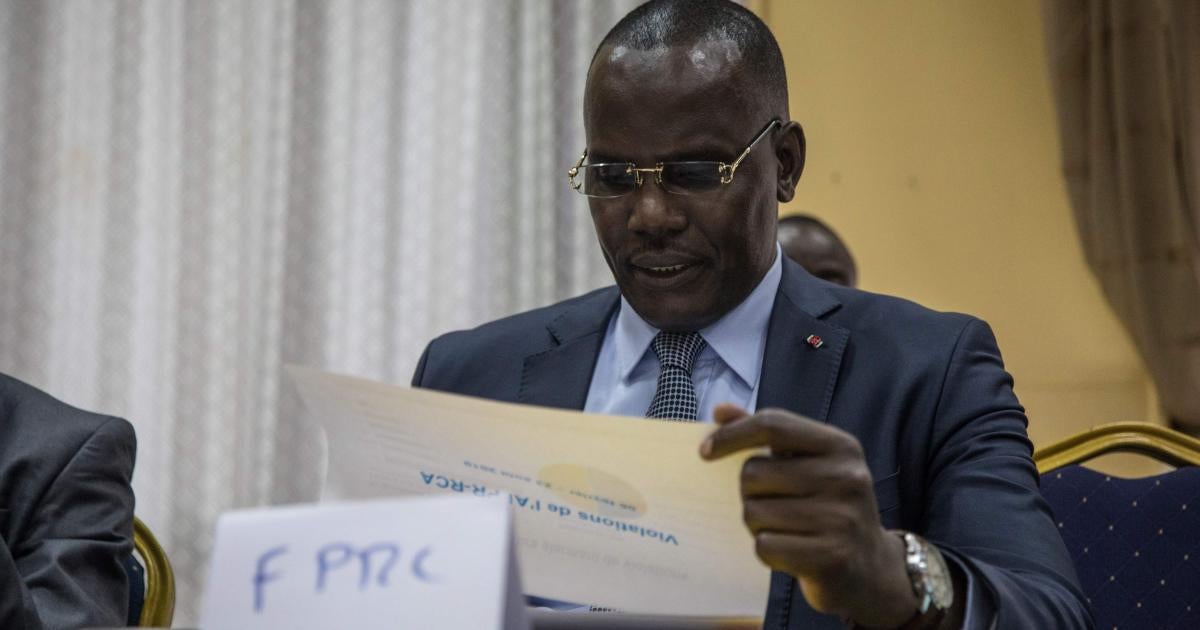This week, the Special Criminal Court (SCC) in the Central African Republic announced charges against Abdoulaye Hissène for war crimes and crimes against humanity committed in 2017 as leader of the group Popular Front for the Rebirth of the Central African Republic (Front Populaire pour la renaissance de la République centrafricaine, FPRC).
In a country teeming with individuals implicated in war crimes, Hissène stands out. He was an early Seleka commander and a minister while the rebels held the capital, Bangui, in 2013. Later he was a leader of a splinter group headed by Noureddine Adam, who is currently a fugitive suspected of war crimes and crimes against humanity, including torture, by the International Criminal Court.
Hissène’s fighters were implicated in violence across Bangui in 2015, in September and October, and in December as people voted in a constitutional referendum in the city’s PK 5 neighborhood. Human Rights Watch documented hundreds killed and thousands of homes destroyed by these fighters north of the capital from 2014 to 2017.
Hissène is reportedly being held on a military base also serving as a detention center for high profile detainees. On September 7, he appeared at the SCC, a court based in Bangui established to try serious crimes in the country. The court is staffed by international and national judges and prosecutors, and benefits from international assistance.
Hissène was first arrested in 2016 but his men broke him out of his Bangui jail after only a few hours. Months later, men under Hissène and Haroun Gaye, another Seleka leader, kidnapped five policemen. International peacekeepers launched a failed rescue attempt and several people were killed. In August 2016, Hissène lead a heavily armed convoy out of Bangui, engaging in several gunfights with United Nations peacekeepers. In 2017 the United States and the UN put him on a sanctions list. In 2018 a criminal court in Bangui tried and convicted him in absentia on charges of association with criminals, possession of illegal weapons, undermining state security, and rebellion.
In 2020 Hissène broke with the other Seleka groups and refused to back a new rebel coalition, putting him in good standing with the current government. In 2022 he made headlines for participating in a political dialogue.
Hissène felt protected and lived in Bangui without fear. His arrest is a warning to others implicated in grave crimes and in positions of power, that the reign of impunity in the country may be fracturing.




